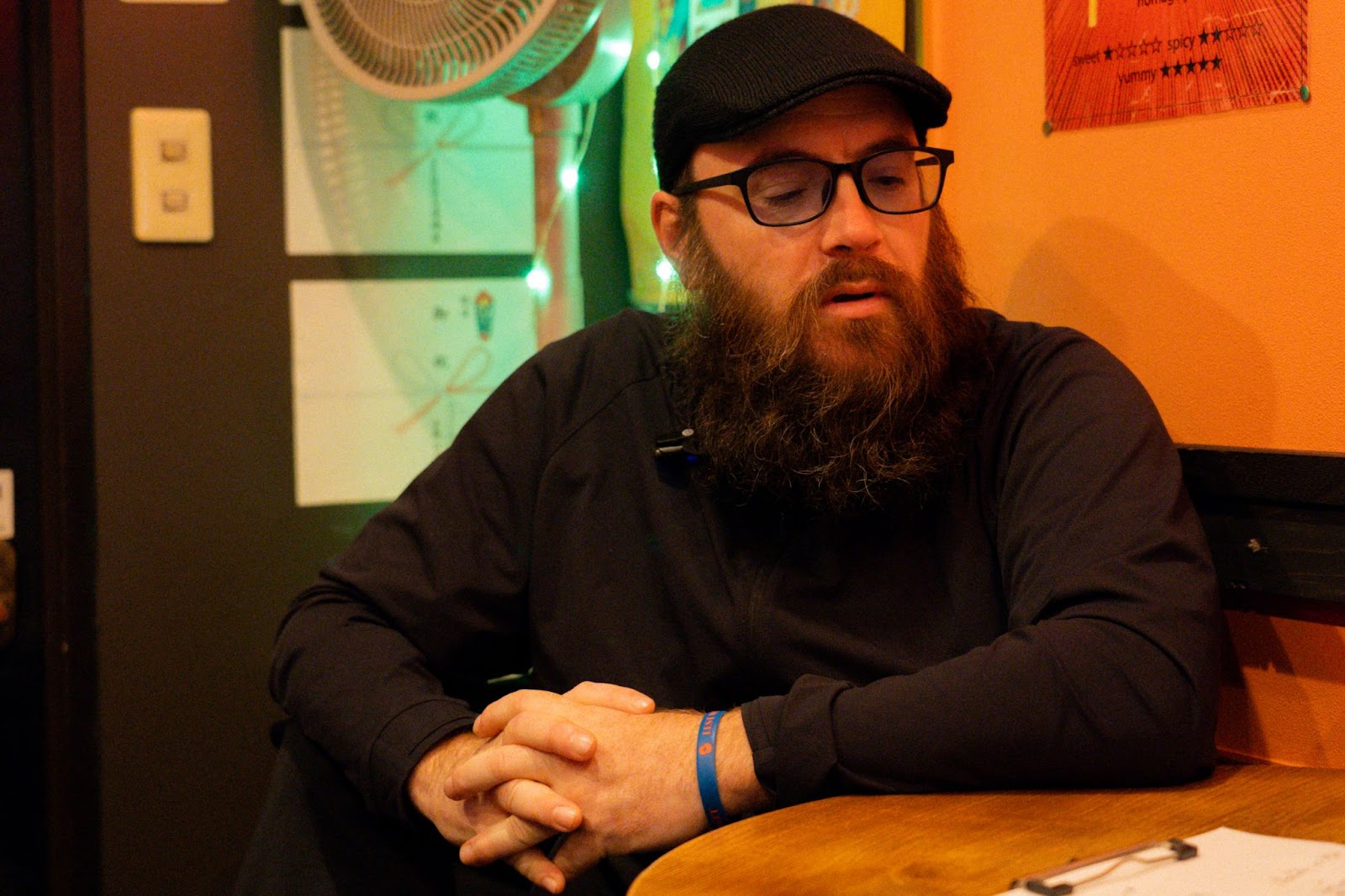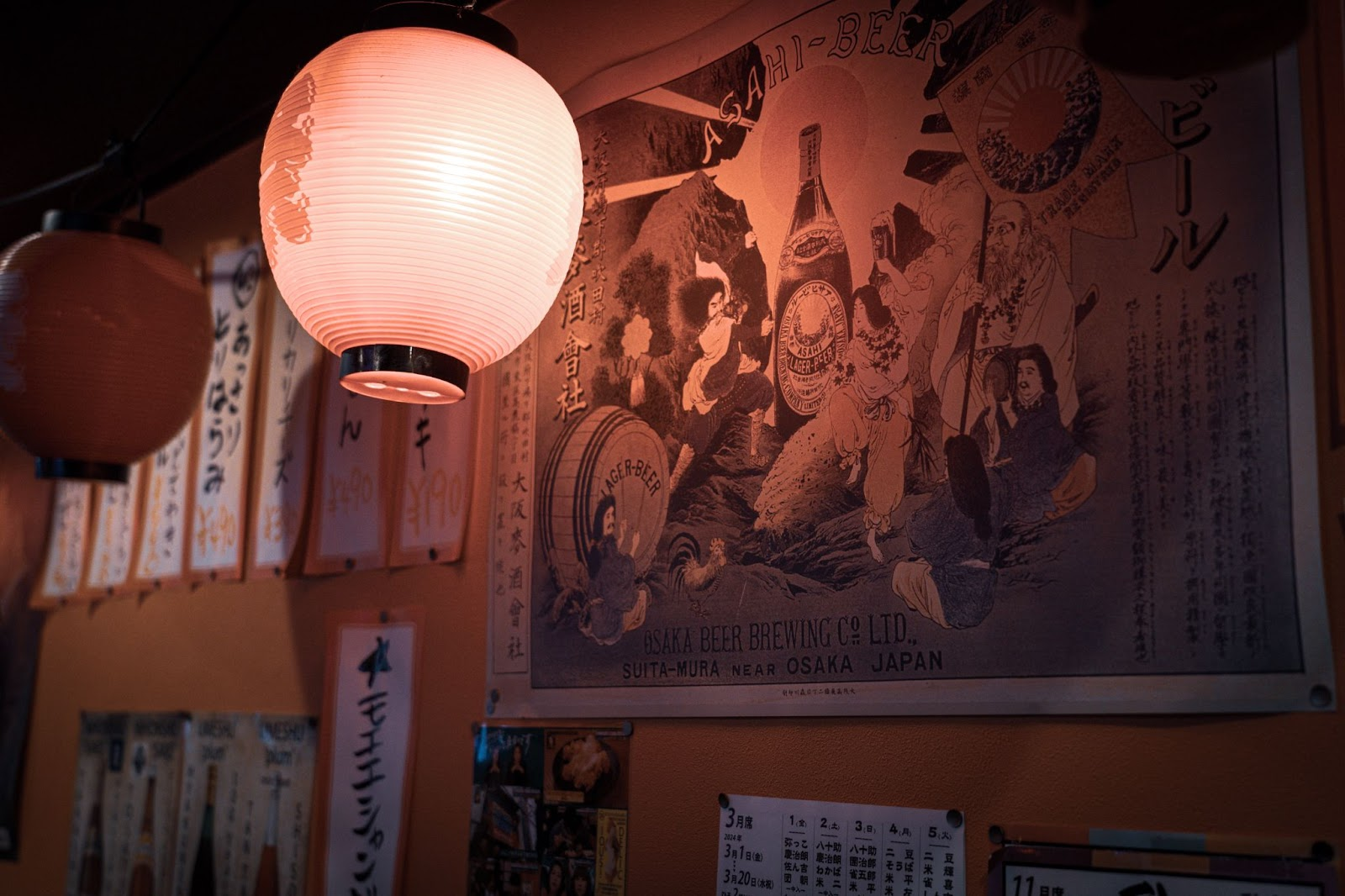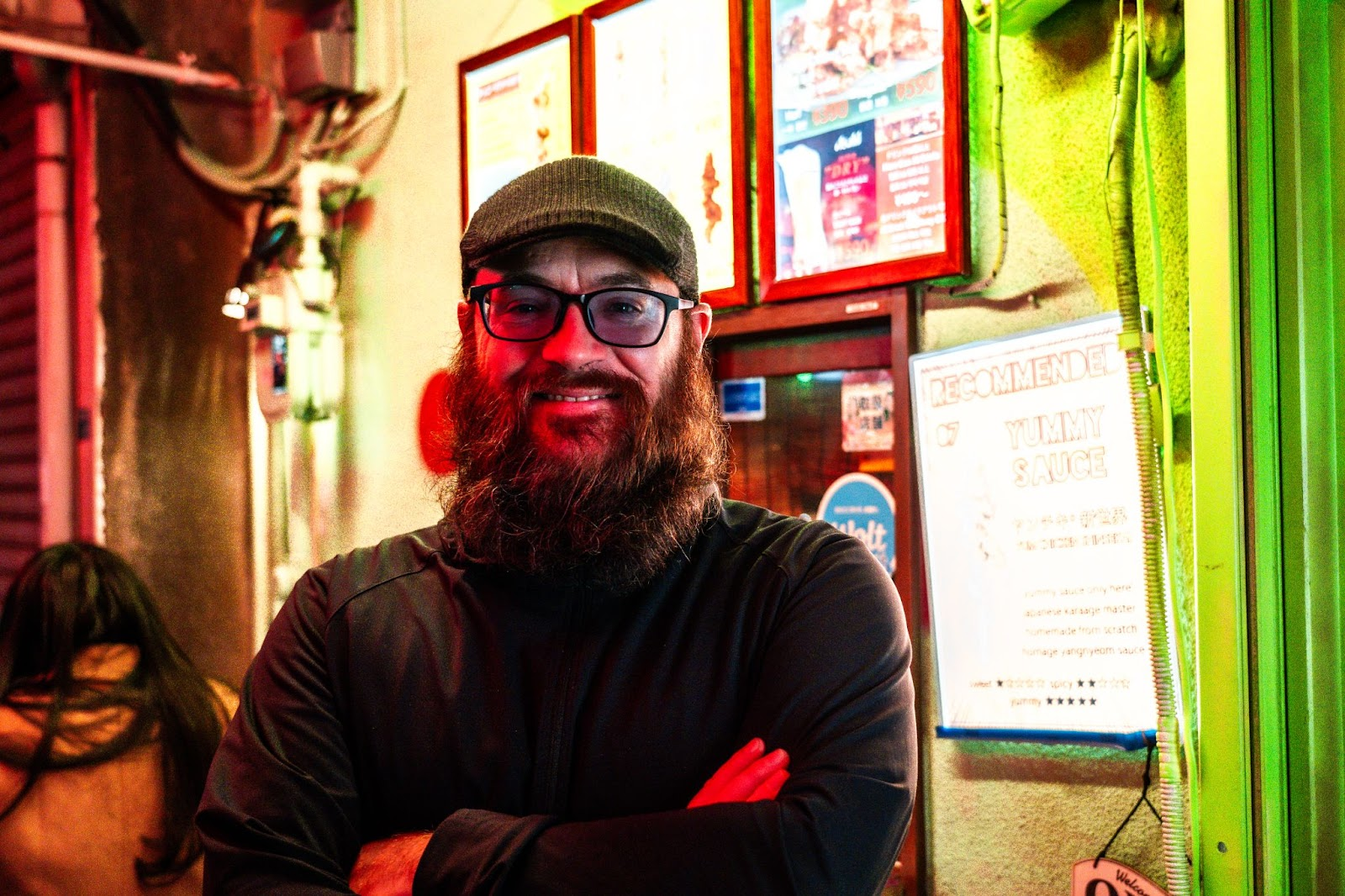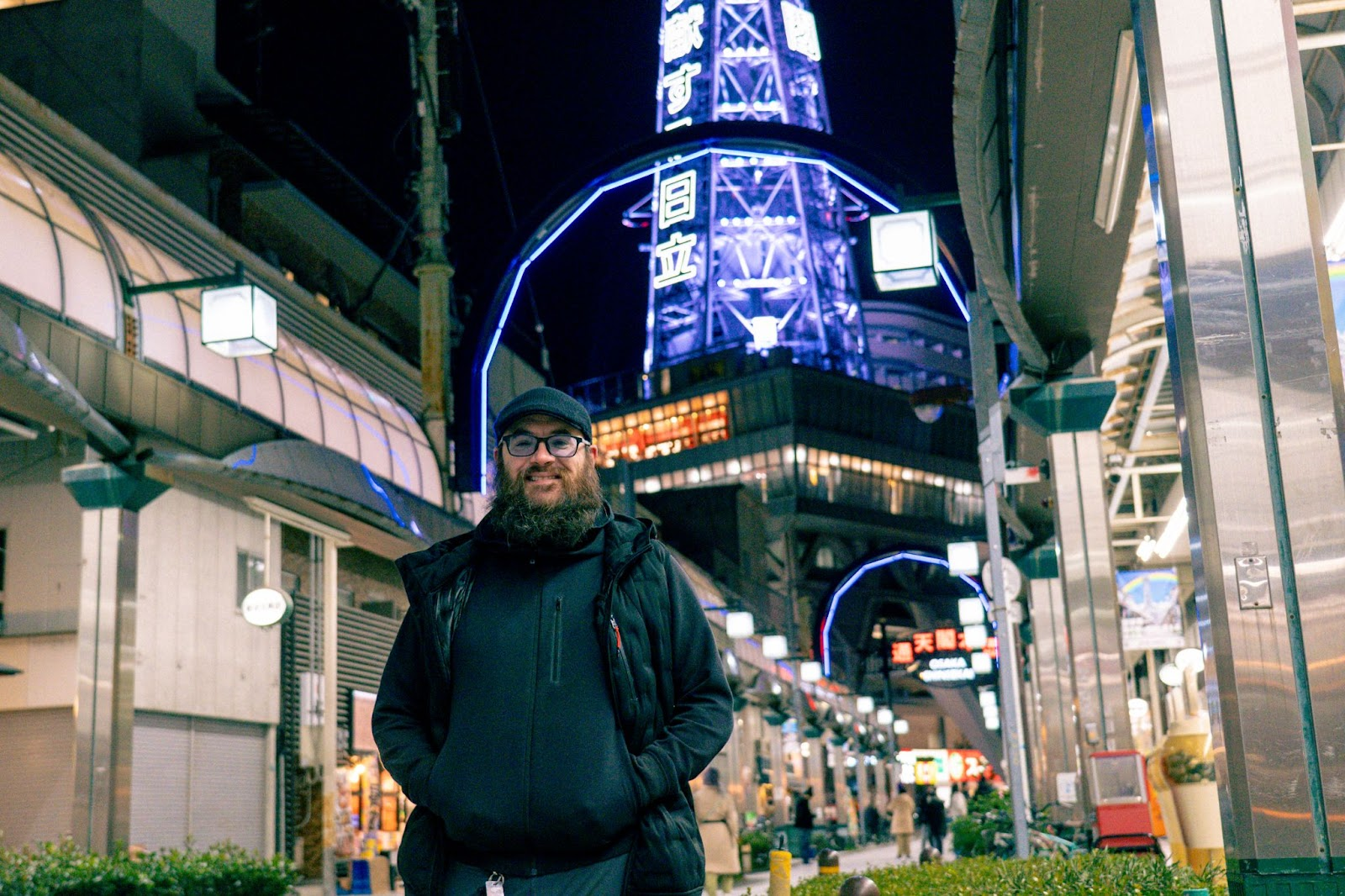Stay updated with the latest news, exclusive insights, and more.
.png)
In our [Light Interview] series we talk to foreign entrepreneurs in Japan who are forging their own path outside the tech/startup ecosystem. Whether business owners or freelancers, we will bring you conversations with people who took the road less travelled to find out what makes them tick.
In today’s article we are talking with Andy Watanabe, owner of Hungry Osaka tours, which conducts walking and food tours. Tourism is booming in Japan post-covid, but how did Andy end up running his own tourism business? Read on to find out!
Well, my name is Andy Watanabe. I'm 45, and this is my 25th year living in Japan. I've lived all around the country and have done a multitude of jobs since arriving here. I was born in Germany to a military family and spent most of my childhood in the UK. I did three years at university in London, where I graduated with a degree in history—which I've never used!
After university, I was torn between joining the military or becoming a teacher. I had traveled extensively while growing up, thanks to my dad, and during university, I took advantage of student discounts to visit North America, South America, and much of Europe. I had never been to Asia, so before starting "real life," I decided to go. I visited six or seven countries, with Japan as my last stop. I spent about three and a half weeks here, and it was amazing. The blend of old and new, tradition and modernity, east and west—I found it all fascinating. I thought, "Why not come over and teach for a year?" So, without much of a game plan, I went home, sold everything, and said, "I'll see you in a year." Twenty-four years later, I'm still here.
It's been a journey with its fair share of twists and turns, but I've loved living here. It wasn't planned at all—a lot of people now come over with a clear professional trajectory, but back then, it was mostly teaching or nothing. I just sort of fell into different jobs along the way.

Sure. I initially came over as a teacher and taught for about three years in Tokyo. This was around the year 2000. During that time, teaching was the easiest job to pick up.
When I got married, we moved to my wife’s hometown in northern Japan, where I continued teaching at private schools and eikaiwas [note: eikaiwas are English conversation schools]. I enjoyed the job but often found the system frustrating. I had ideas for improving things, but it wasn't my place to make those changes.
I went to a military-based school growing up, which was strict but open to practical suggestions for improvement. Japanese companies, on the other hand, were rigid. I loved working with children, but I found middle management frustrating. Promotions often seemed to reward endurance rather than innovation. I gained a bit of a reputation for being a troublemaker because I would speak up when I thought something could be improved.
Once I had a family, financial responsibilities grew, and I realized I wanted more control over my work. So, I decided to open my own English school. I had worked in various teaching environments—ALT, private schools, eikaiwa—and thought, "If I run my own school, I have no excuses. Success or failure will be on me." It was a big gamble. I rented a place and worked six days a week, 75 hours a week, for about three and a half years. It was tough, but it was for my family, and I enjoyed the responsibility.
Starting my own business went against everything I'd been taught growing up. My family emphasized getting a good education and a stable job, not entrepreneurship. But I found I thrived on the responsibility. When I made mistakes, they had real consequences—financially or reputationally—but those mistakes taught me invaluable lessons. Within three years, I grew the school from five students to 125 and had to move to a bigger location. That growth validated my decisions and hard work.
When we eventually moved to Osaka, I returned to another passion of mine—tour guiding. I'd done some guiding in northern Japan years earlier and loved it. Osaka is so different from rural Japan; there are many more job opportunities here. I started working for a tour company but soon ran into the same frustrations. I wanted to improve things, but they weren't open to suggestions. So, after about a year, I struck out on my own and became an independent guide.
It was hard work, especially in such a competitive market, but it paid off. Today, I have three full-time guides working under me. I have strict criteria—guides must speak fluent English and Japanese and have lived in Japan for at least ten years. I want to offer a high-quality experience because when people give us their day in Osaka, I take that responsibility seriously.
Osaka is often a mystery to visitors. Unlike Tokyo or Kyoto, which have clear identities, people don't always know what to expect here. Is it about food, history, entertainment? I see myself as a bridge, showing people the city's unique, gritty, and vibrant side. Running my own business has its challenges, but at the end of the day, I wouldn't have it any other way.

I've felt it challenging sometimes being a westerner in Japan when dealing with things like banks, city hall, the bureaucracy. That's always been quite troublesome. Now, my wife is Japanese, so I have to give her a lot of love here; my wife's helped me so much, if I didn't have her, it would have been 10 times more difficult. And obviously having someone who knows how the system works, the ins and outs of how to do this and that, has been an incredible help because it means I can focus on the business itself.
But I've also felt that when it gets to a bureaucratic level, when you go to city hall or banks, there’s an attitude of “these are the rules and it's not going to change.” As a small company becoming incorporated, getting a business bank account, it's been so hard because their attitude is like, "eh, we don't trust you."
There are companies in Japan that are losing money annually, but because they’re established they get bank financing, and then there are small companies—it's not just for foreigners, but also for small Japanese startup companies—banks don’t want to extend them any credit. And that, in just my opinion, is bottlenecking the growth of small companies.
I think a lot of younger Japanese people see all of these impediments and give up on their dreams. I think if Japan really wants to foster a startup culture, Japanese institutions have to move away from the 1980s, 1990s industrial model of "you're a big corporation, so therefore we give you as much money as you want. You're a small company? We don't trust you."
I think that's somewhat compounded as a foreigner, so I found it to be a little difficult.
But also, that is maybe a bit of an advantage because starting a new company doesn't come from a position of comfort and stability. As an immigrant, if you're already always going to be outside looking in, why not lean into that? For me, I don't really feel like I had much of a choice. I just did it. And it's kind of working.

Learning the language was a big thing for me because when I walk into a restaurant that I want to put on my tour and I speak fluent Japanese people are like, "you've taken the time to learn my language. Thank you." And because in the context of a Japanese relationship I'm approaching them, they shouldn't be speaking English to me. It should be me showing that I’m making the effort.
If you are from another country but you understand the customs of Japan and you speak the language, I found Japanese society to be very supportive. People here want to see you succeed. You know, restaurant owners on my tours, locals, they've always been super friendly. As long as you're respectful and you're grateful—and I'm very grateful—people support you.
People here appreciate effort. When people in Japan see that you're doing your best, that you’re putting in the work, they like to see that, and you’ll get the same energy back in return.
